Plant-Based Food to Help Fight Disease
Did you not just hate all the different types of vegetables our mothers would try and make you eat as a kid? And what kid didn’t like that green stuff on our plates. Mother would say that if you don’t eat your veggies, you won’t get any pudding. Was that meant to be a bribe? Name one kid who doesn’t like pudding. Then you sat there staring at what’s left on your plate and all there is, are the vegetables you sim. So you grin and bear it and eat the veggies.
Fast forward, and you realised that your mother was doing you a big favour by continually nagging you, just like she did your father, to eat up all your vegetables. After all, mother knows best, doesn’t she?
How times have changed! In this fast-paced world, when most mothers have no alternative but to give up their valuable time at home now and go out into the corporate world. Economics dictates this. It wasn’t like that during the Baby Boomer years. Then mothers stayed at home looking after the kids, making sure they did all their homework and cooking up a storm in the kitchen, mainly vegetables.
But thank goodness for the internet. The mothers who are fortunate enough to be able to work from home again, have more time now to spend doing chores their grandmothers would have done during those bye-gone years. It is, of course, debatable whether the tasks today are better than those of yesteryears.
However, there’s no denying we all need vegetables for living a long and healthy life. Vegetables are low in calories. Vegetables are full of essential nutrients such as potassium, magnesium, folic acid, dietary fibre, as well as vitamins A and C. The perfect ingredients for maintaining a healthy functioning body.
Would you ever consider following a healthy vegetarian lifestyle? Contrary to popular belief, eating red meat is not better than eating a whole host of mouth-watering vegetables. I’m proof of that because I’ve been a vegetarian for over 45 years now and have no regrets whatsoever. Whether you want to believe it or not, research has shown that people living a vegan or vegetarian lifestyle have a much lower risk of a whole host of diseases, including heart disease and cancer.
A recent study published in the journal of the American Medical Association found that vegetarians have a much lower risk of contracting many of the diseases that continue to plague us to this day. The risk of dying is 12 per cent lower than meat-eaters. It’s never too late to eat start eating veggies.
Fresh Vegetables
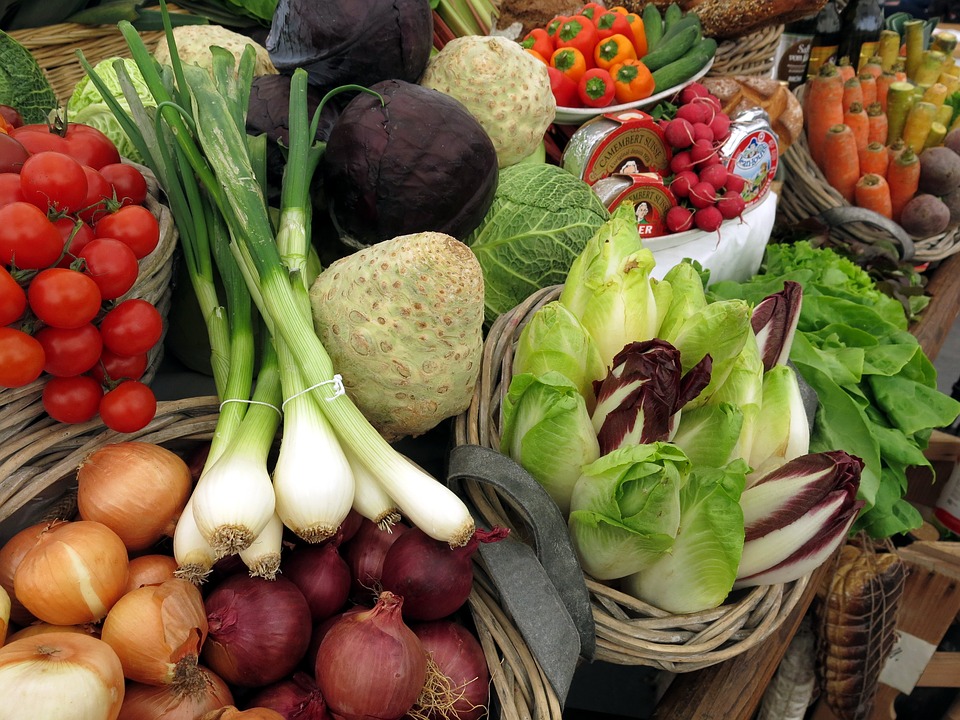
Types of Vegetables – Cabbage
While a hot compress made from cabbage leaves and placed on your tummy can help ease stomach upsets, a cold cabbage compress can also relieve breast tenderness when you place the chilled leaves inside your bra. However, cabbage has a lot more health benefits. It can help prevent, breast, colon, lung and prostate cancer. Cabbage can also prevent heart disease and lower your risk of cataracts.
Just like other members of the cruciferous family, cabbage is rich in antioxidants, and they also contain two crucial cancer-fighting chemical compounds. One is called indole-3-carbinol, which is especially effective against breast cancer. Another compound is sulforaphane, which has shown to step up the production of tumour preventing enzymes in the body.
Cabbage
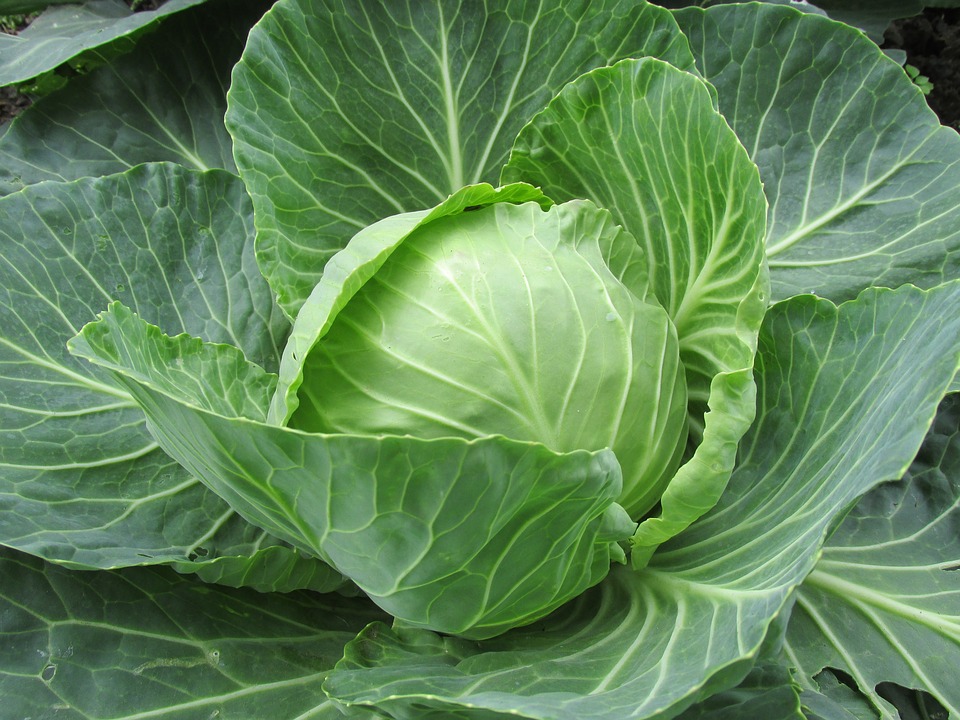
Types of Vegetables – Carrots
Do carrots improve night vision? We’ve all heard that statement many times. During the second world war, the practice of eating carrots before going on a night raid, British pilots could see better and thus win the fight against the enemy. And we all know that they did. So there could be some merit in eating carrots to improve your vision at night.
I can remember as a youngster that I could play cricket better at night than I could during the day because I was able to see the ball clearly in the dark. During the day I had way too much competition. The healing power of carrots goes way beyond their ability to help your vision. Carrots contain several chemical compounds that may also help prevent certain types of cancers, heart attacks as well as lower cholesterol.
Carrots
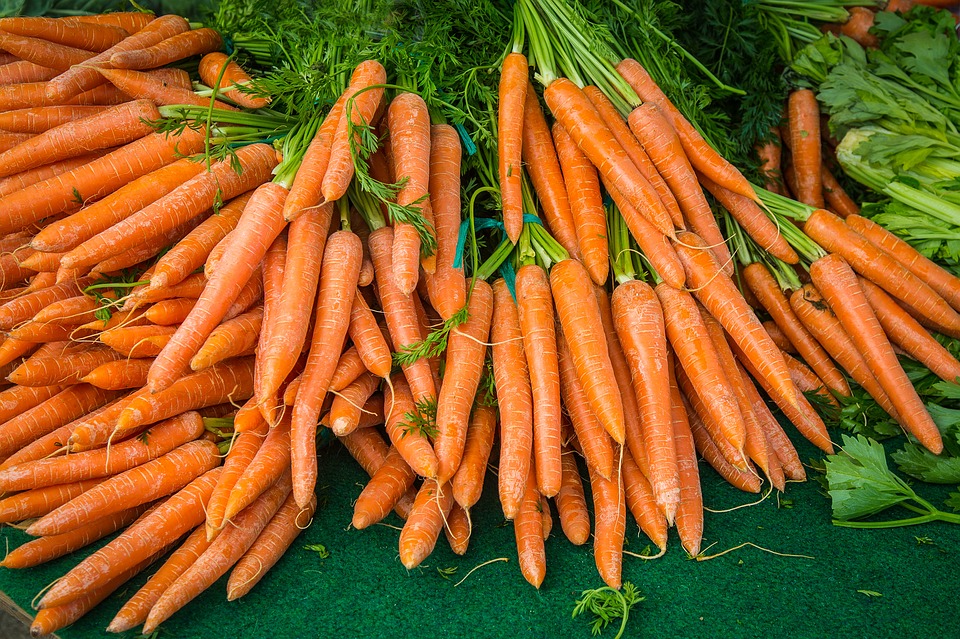
Types of Vegetables – Cauliflower
Mark Twain once said that cauliflower is nothing but cabbage with a college education. But what he didn’t know was just how valuable this cruciferous family member was in our quest for good health. And if he did, Huckleberry Finn and his friend Jim might have spent their days eating raw cauliflower instead of those greasy catfish fillets.
Just like cabbage and broccoli, cauliflower comes fully loaded with nutrients that help you fight a whole host of diseases, including cancer. Cauliflower is also an excellent source of essential vitamins and minerals, necessary for keeping your immune system in check. So don’t take Mark’s comment to the test and eat cauliflower.
Cauliflower

Types of Vegetables – Broccoli
I cannot tell you how good Broccoli is for you, but I’m going to tell you anyway. And as it turns out, your mom was right about this crunchy vegetable that resembles a miniature tree. We also know that Broccoli isn’t everyone’s favourite veggie, but this cruciferous family member can ward off a whole host of health issues, including heart disease and cancer.
It can also boost immunity. The chemical compound found solely in Broccoli helps maintain the health of the tiny batteries that power cell in your body. This chemical improves metabolism and can reset cellular processes that become disrupted as we age. So don’t forget to bulk up on Broccoli when you next go grocery shopping.
Broccoli
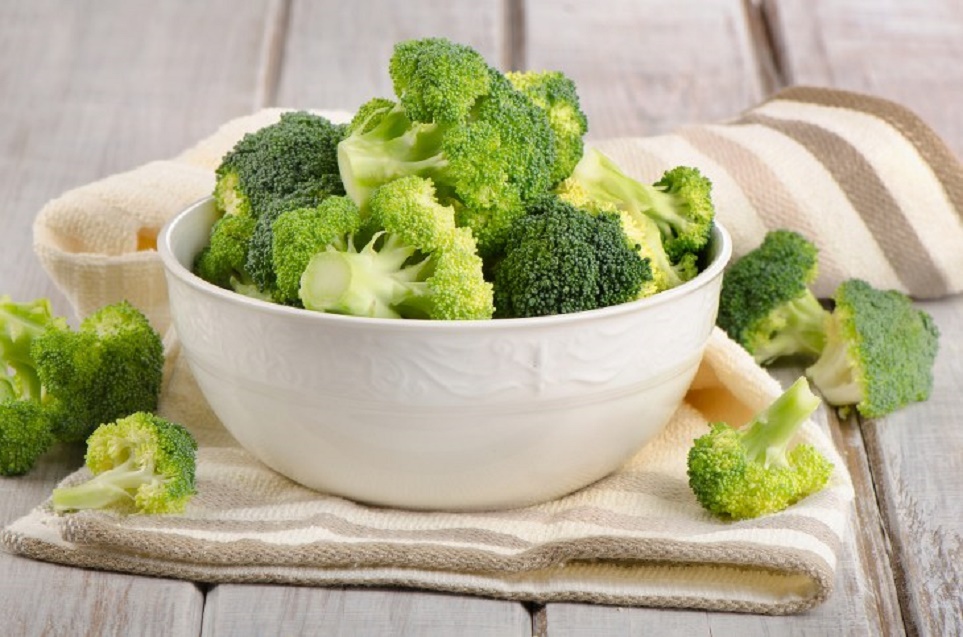
Types of Vegetables – Celery
I bet not many guys know that celery contains a natural steroid called androstenone. It’s a chemical compound which causes sweat glands to release the pheromone androstenol. It is something which is also often used in colognes and sprays to attract members of the opposite sex. It may entice more guys to go out and make celery a must-have sexy item in their shopping basket.
And another good reason to snack on celery is it can lower your risk of developing colon cancer as well as help reduce high blood pressure. Celery is also a great source of vitamin C, vitamin B6, potassium, folic acid, fibre and calcium. Can’t go wrong with that.
Celery
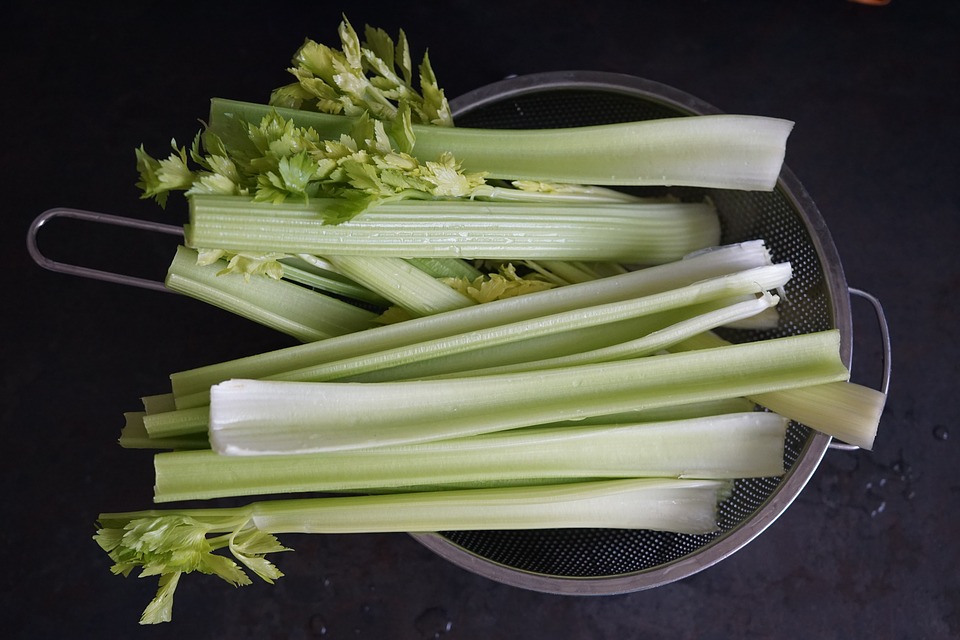
Types of Vegetables Brussels Sprout
You’d be dead right thinking that Brussels Sprouts look just like a miniature version of its cousin – the cabbage. And that’s because they are. It’s also likely to be the one vegetable on your plate you’d most want to slip under the table and give to your dog. Only trouble is, dogs don’t like them either. So it’s best to simply grin and bear them. After all, they are not nearly as bad as you think.
They have gotten a lot tastier than they were in the past. Brussel sprouts of yesteryear were strong and bitter, but thanks to a new and improved method, Brussels sprout growers started changing the hybrids to make these little green balls taste a lot better. They are certainly making a big little comeback.
Brussels Sprouts
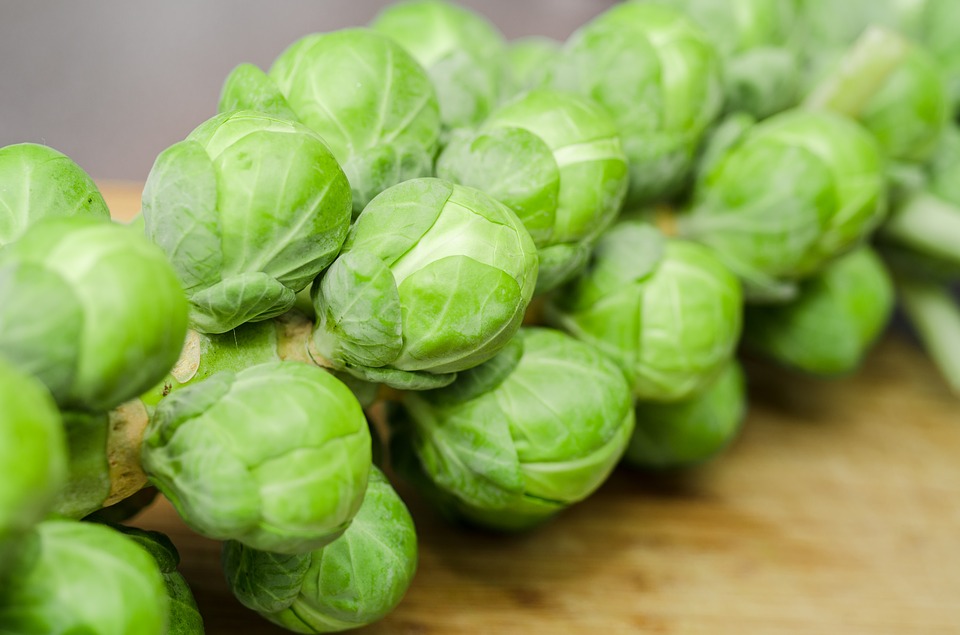
Types of Vegetables – Onion
Want to know what’s so essential about onions? Well, for starters, just beneath their paper-like skins are several chemical compounds that help lower cholesterol, thin the blood and prevent hardening of the arteries, all of which can significantly help prevent heart disease.
One of the most critical heart-healthy compounds in onions is the flavonoids. The antioxidant properties within help gather up cell-damaging oxygen molecules called free radicals, which naturally accumulate in your body. Onions also have the healing power to lower blood pressure, decrease the risk of cancer, reduce inflammation and relieve congestion.
Red Onions
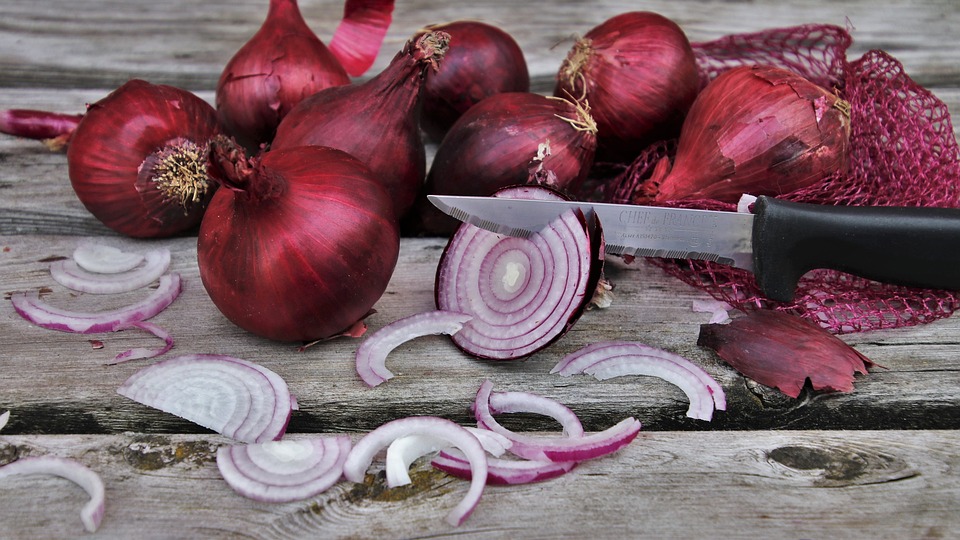
Types of Vegetables – Artichoke
Where did this green pineapple looking vegetable come from, and is it something we can eat? The outer leaves may be tough, but once you get to the heart of the artichoke, everything changes. Artichokes are the immature flower of the thistle plant and initially discovered in the scorching Nile Valley.
Today they are grown in many parts of the world. Artichokes have the healing power to protect you against skin cancer. They can help prevent heart and liver diseases as well as help prevent congenital disabilities. Artichokes are also an excellent source of fibre.
Artichoke
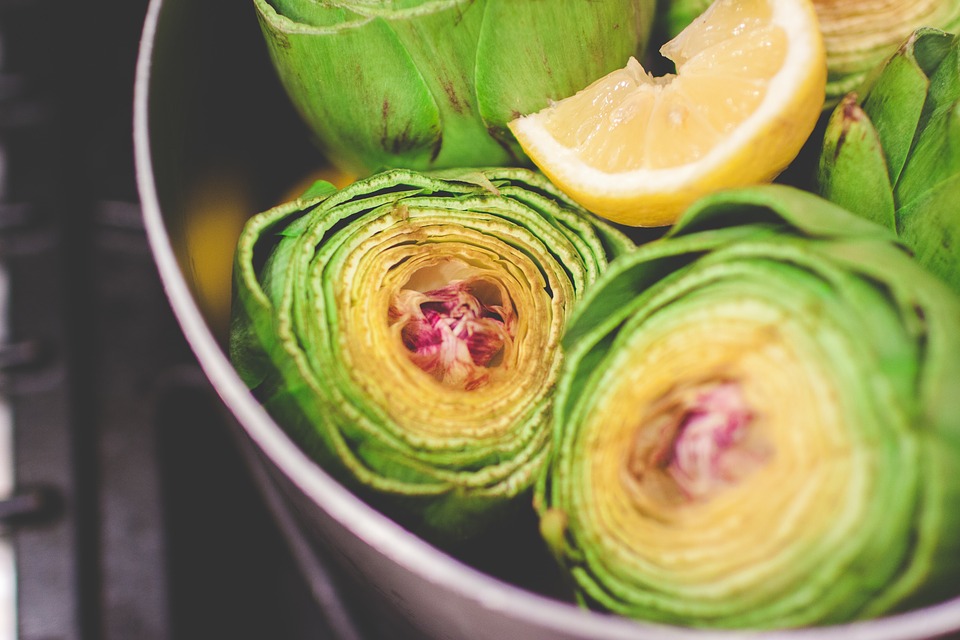
Types of Vegetables – Parsnip
At first glance, parsnips appear to be similar in shape to that of carrots, only much lighter in colour. But despite their pale appearance, their nutritional profile more than makes up for its whitish tone. Would you believe that parsnips don’t come from the same root family of carrots, but surprisingly, from the parsley family, hence the name.
Parsnips are a good source of fibre, folate and phenolic acids. They can also help prevent colon cancer, lower your risk of heart disease, stabilise blood sugar levels, decrease the risk of a stroke and protect against congenital disabilities.
Parsnip
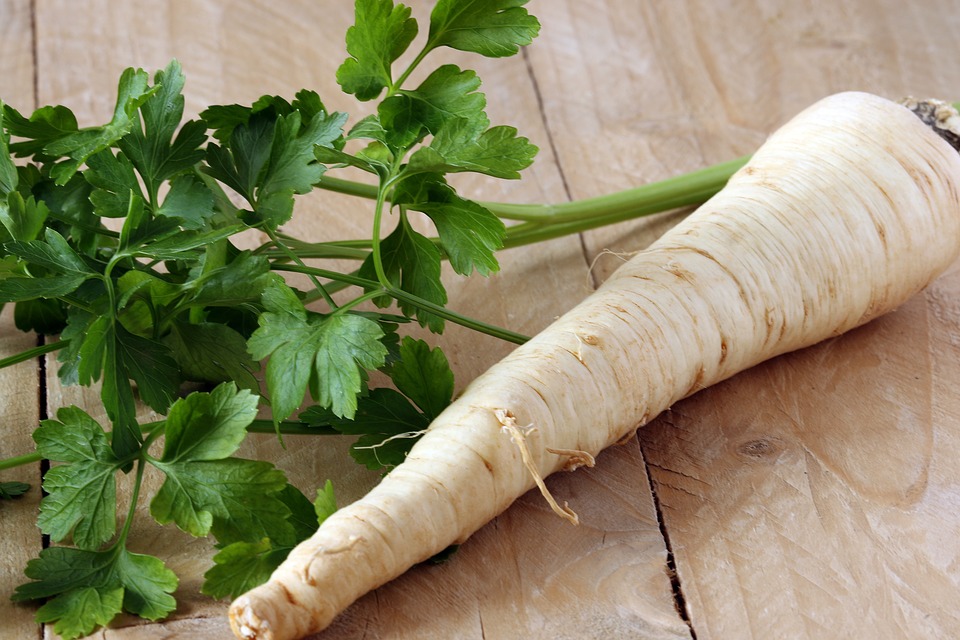
Types of Vegetables – Asparagus
I’m sure you’ve all experienced that after eating just a small amount of Asparagus, your urine seems to have an unpleasant odour. It’s nothing to be alarmed with, and there’s no need to go rushing off to the emergency room either.
There are many reasons to add Asparagus to your dinner plate because this tasty vegetable helps keep your immune system healthy and helps lowers cholesterol. Asparagus is also an excellent source of folate and vitamin E and contains fructooligosaccharides, which helps promote the growth of beneficial bacteria in the colon and is a natural diuretic.
Asparagus
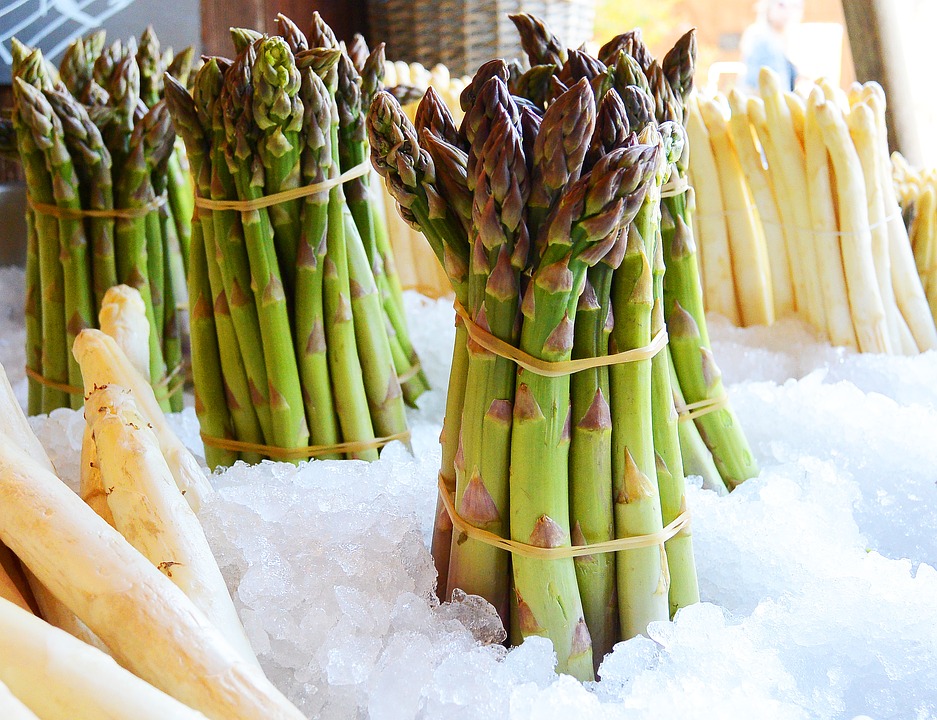
Types of Vegetables – Beets
If you want to improve your endurance before any sporting activity, you might want to increase your intake of beetroot. This bulbous vegetable plant is rich in nitrates, which helps promote the delivery of oxygen throughout your body.
Studies show that by eating beetroot or drinking beetroot juice two-and-a-half hours before a race or any other form of exercise will help boost your performance. Beetroot helps protect against cancer and the compound that gives this vegetable it’s rich, natural crimson pigment is called betacyanin, which is a powerful tumour-fighting agent.
Beets and Carrots
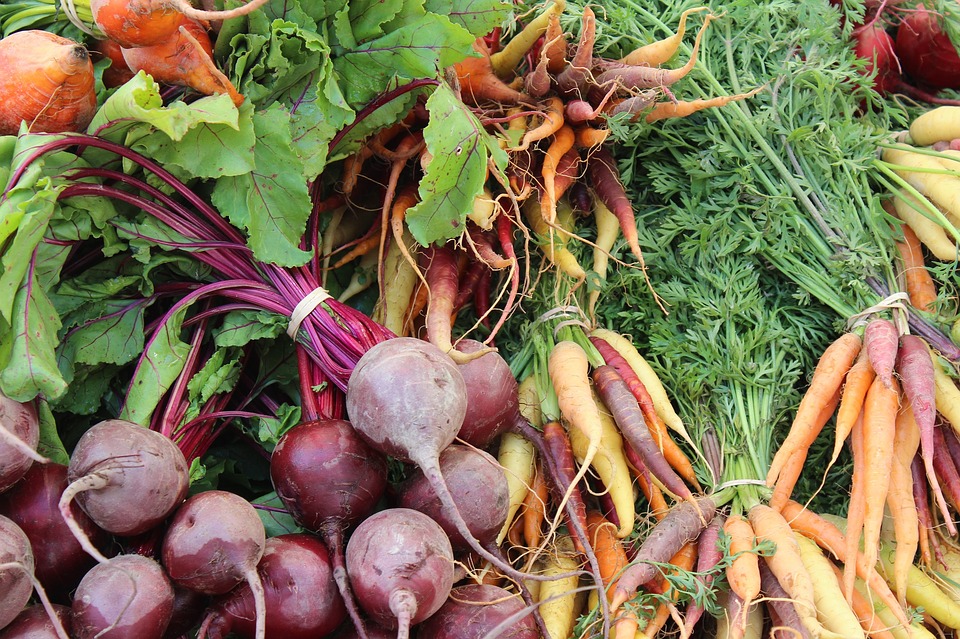
Types of Vegetables – Pumpkin
It’s no coincidence that when Halloween night comes around, pumpkin sales skyrocket. But it’s also a sad fact that the flesh of the pumpkin usually gets discarded. The thick outer skin is the only part that survives. Well, at least for the night.
It’s a darn shame since pumpkin is much more than just a giant winter squash or a delightful decoration. Pumpkins come packed with powerful carotenoids like beta-carotene, which can help stop cellular damage before it leads to disease. Pumpkins have the power to prevent macular degeneration, heart disease and cancer as well as boost immune systems.
Pumpkin
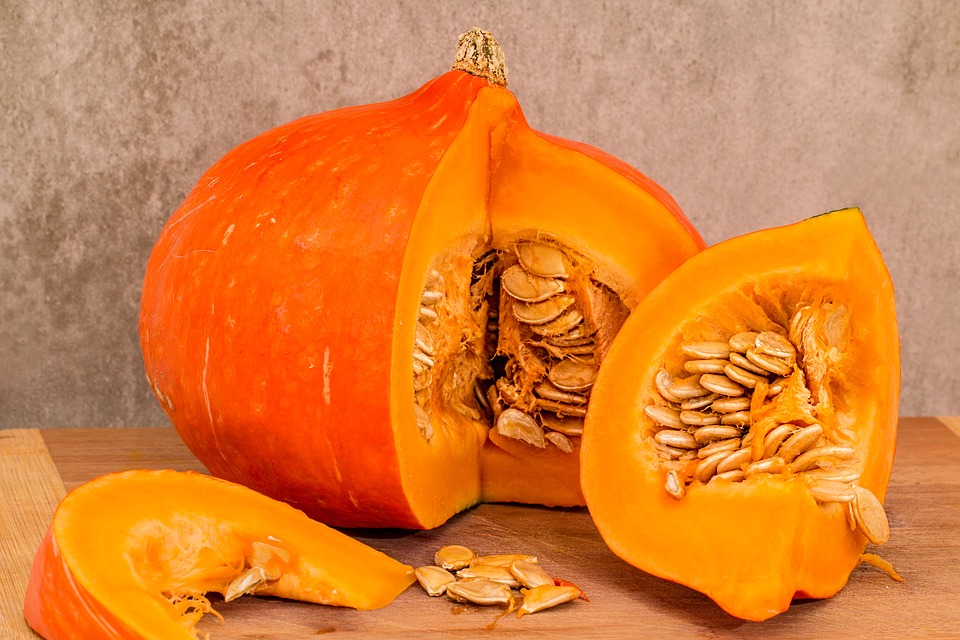
Types of Vegetables – Squash
People have been eating Squash for thousands of years, and in some findings, these deep yellow and orange flesh vegetables have been buried with the dead to provide them with nourishment on their final journey. When we talk about the healing powers of Squash, we are usually referring to winter squash such as Hubbard, Acorn and Butternut.
However, supermarkets these days, often carry many other varieties such as the Calabaza Squash, the Delicata Squash, the Golden Nugget Squash and a few others. All types of Squash are packed with nourishing compounds and contain a rich array of vitamins, minerals to help ward off diseases such as lung infection and endometrial cancer.
Butternut Squash
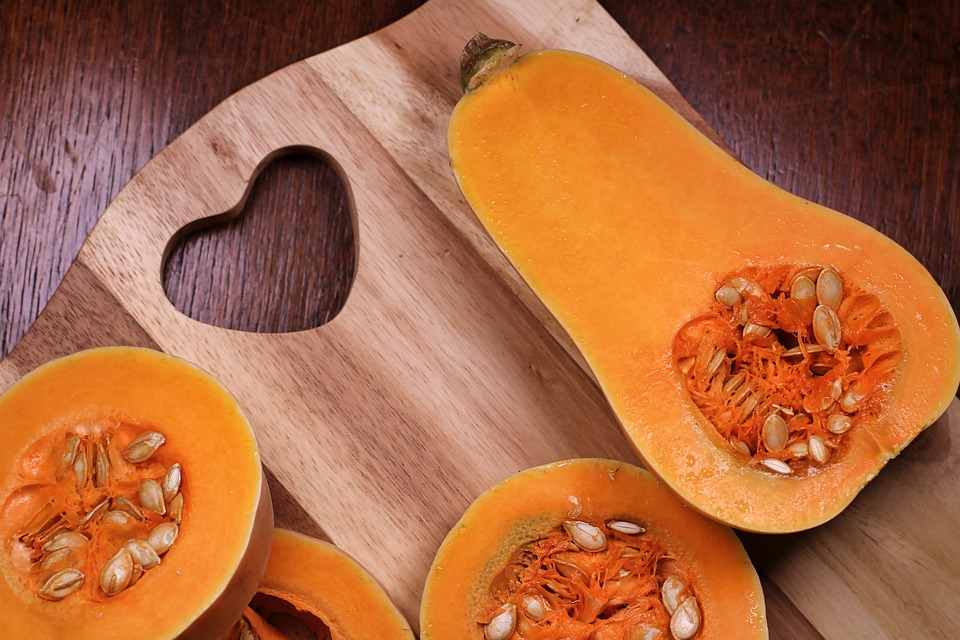
Types of Vegetables – Sweet Potato
Except in name, the sweet potato has no relation to the nightshade family potato, but it is, however, a member of the morning-glory family. Sweet potatoes contain antioxidants, beta-carotene and vitamins C and E. They play an essential role in preventing cancer and heart disease. And because sweet potatoes are rich in complex carbohydrates and low in calories, they control weight and weight-related conditions like diabetes. In addition to fibre, sweet potatoes also contain the B vitamins, folate and B6 that help boost brain performance as well as helping to preserve memory.
Sweet Potato
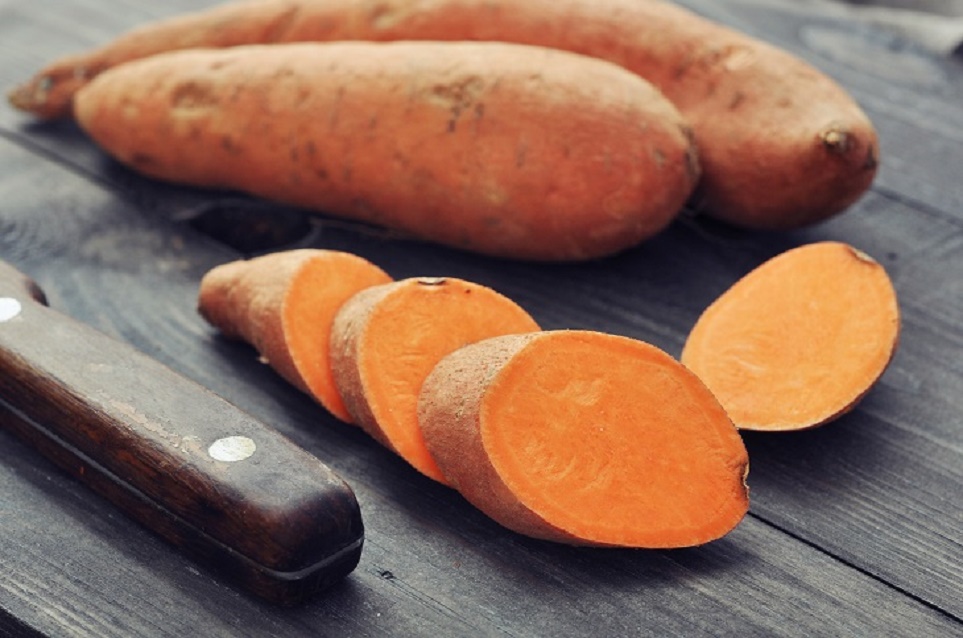
Types of Vegetables – Dark Leafy Greens
How many of you out there can tell me that dark leafy green vegetables deliver more nutrients for fewer calories than virtually any other food on the planet? No, this is not a trick question. There are simply tons of essential nutrients in leafy green vegetables—even the not so dark variety.
Leafy greens such as spinach, kale, Swiss chard, collard greens all contain magnesium, iron, calcium, folate, vitamin C and vitamin B6. And this is just the beginning of more healthy ingredients to come. These vegetables also contain heart disease and cancer-fighting phytochemicals. These vegetables are the densest nutrient foods that we have available, yet how many of us are eating them.
Leafy Greens
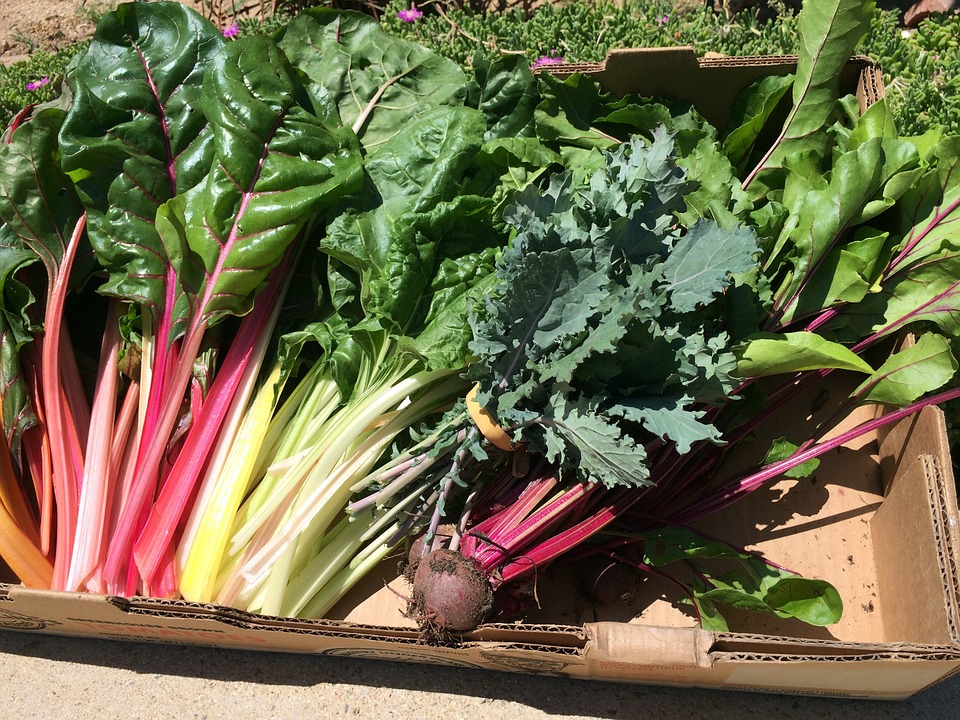
Types of Vegetables – Peas
We’ve all heard the expression – Just like Two Peas in a Pod – but where did it all originate? While some may argue that two peas from the same pod are virtually indistinguishable, the answer might lie in the fact that when you breed two different peas together, the offspring could take on the features of both “parents.”
Peas are much more than some scientific theory; they have shown to contain a powerful compound that can help prevent healthy cells from becoming cancerous. Also, peas contain substances that can help ease symptoms of the common cold.
Peas
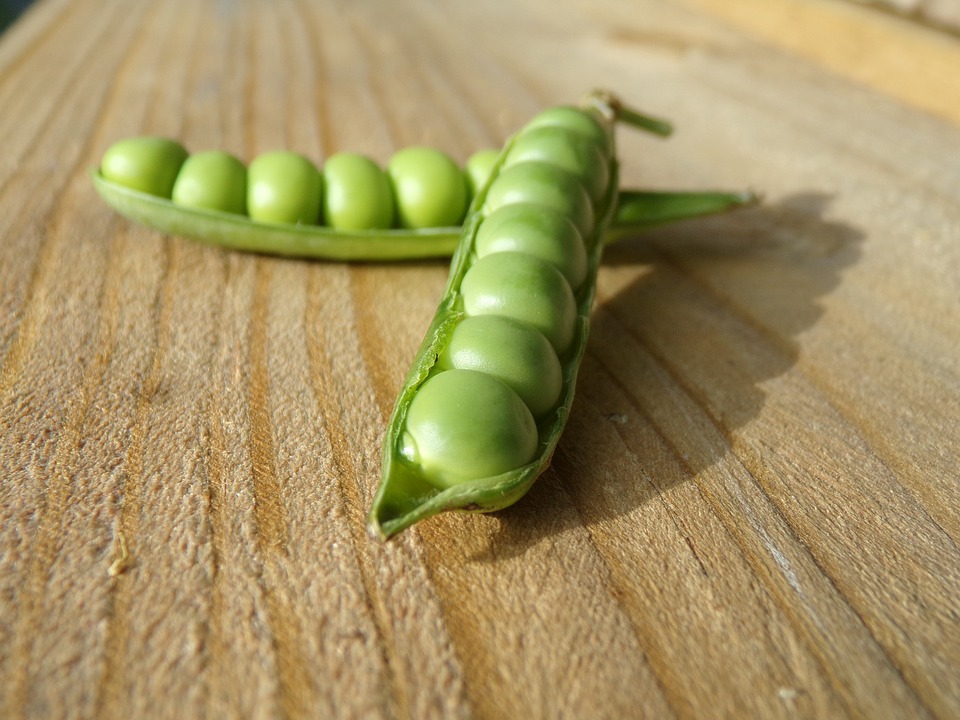
Love Travel Eat Right – Disclaimer
Please take note that the information on this site is designed for educational purposes and is intended solely for a general readership. The contents herein are not intended to offer any personal medical advice or to diagnose any health issues you may have. This information is also by no means a substitute for medical care by a licensed healthcare provider. For that, you’d need to consult your medical doctor or a health care practitioner for any advice should you require prescription medication.


